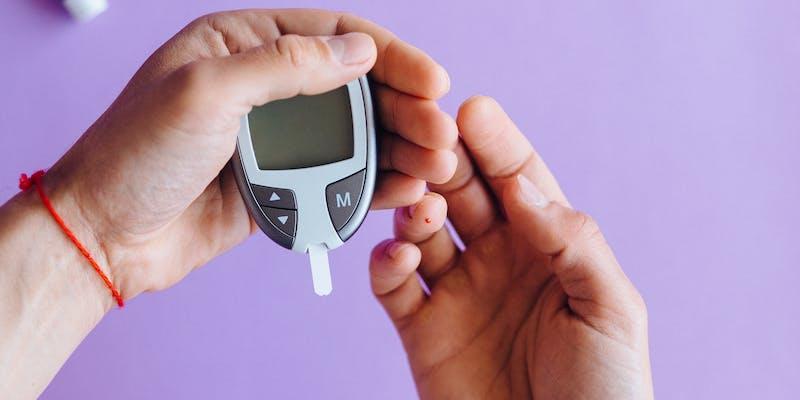
Blood sugar levels, which are frequently feared as the most severe form of diabetes, do not have the same general significance. Afterward, what is the definition of blood glucose units? Glycogen concentration in the blood of organisms constitutes the blood sugar level. It is an incredibly natural occurrence.
Blood sugar or glucose levels in the average 70 kg individual are 4 grams when checked with a blood sugar test kit. The optimal functioning of the human brain and its tissues is paramount. However, if the outcome is inconsistent, apprehensive factors loom. An elevated blood sugar level indicates diabetes or a predisposition to diabetes. Predicting diabetes with a clinical blood test is possible.
Kidney And Sugar
While the pancreas significantly contributes to sugar metabolism, it is not the only participant. The kidneys also serve a crucial function. Understanding the complexities surrounding the process of eliminating sugar from the body can be achieved by examining the functions and roles of the kidneys. Ensuring precise regulation of blood glucose units is the principal function of the kidneys.
The essential renal function is blood filtration. Complex systems filter your blood, removing waste, toxins, and extra water. Your body excretes pee while retaining electrolytes and other essential chemicals. The kidneys take glucose from the blood using the blood sugar test kit for immediate energy. Reabsorbing any residual sugar into the bloodstream conserves it. The human body fights not to waste glucose, which it uses as fuel.
Exercise Helps Burn Sugar

Multiple physiological processes are initiated in response to sugar consumption. It stores a portion of the energy it does not require immediately in adipose tissue or fat tissue, converts the remainder to glycogen for storage in the liver and muscles, and eliminates the remainder as fat. Elevated glucose concentrations in the bloodstream result in inflammation and potentially harm various tissues, most notably the fragile endothelium that lines the blood vessels. By converting glucose to triglycerides, lipogenesis intelligently stores surplus glucose as fat. Because extra fatty tissue and high triglycerides represent specific health hazards, "safe" is relative.
This is crucial because the body fuels exercise using muscle glycogen and blood glucose. If one consumes too much sugar, exercise might help the body. This is even more intriguing: sugar burning increases with workout intensity or duration. A March 2012 Journal of Physiology study found that low-intensity exercise lowers glucose by 10%-11%. Running faster depletes glucose storage by 70%. Walking helps lower blood sugar and keep you hydrated with a water bottle, so even if you hate exercise, consider it.
Do Different Waters Lower Blood Sugar?

Water can lower blood sugar, but there is no right answer. Many individuals find it does. Scientists disagree on how different water types affect blood sugar. Water may lower blood sugar by flushing out surplus sugar from meals and snacks. For blood sugar regulation, drinking water before meals helps fill you with fewer calories. Let’s talk about these in detail:
The Mineral Aqua
Some dissolved minerals in mineral water are potassium, magnesium, and calcium. Multiple research suggests mineral water may regulate blood sugar. Magnesium controls several physiological processes, including insulin sensitivity. Researchers observed that low magnesium levels increase type 2 diabetes risk. Because magnesium regulates glucose metabolism, magnesium shortage can produce insulin resistance, a key risk factor for type 2 diabetes.
Multiple studies have demonstrated that magnesium supplements reduce blood sugar and boost insulin sensitivity using the best blood glucose meter. Mineral water with high potassium levels may elicit similar physiological effects. The scientific publication "Magnesium Research" found that magnesium-rich mineral water increased insulin sensitivity in overweight and obese persons.
Alkaline Hydrous Solution
Tap water is lower in pH than alkaline water. At pH 7, a material is neither acidic nor basic. Standard alkaline water pH is 7.5–9.5. Advocates say alkaline water lowers blood sugar and acidity. Acid-forming foods such as processed foods, sugar, and alcohol may acidify the body because alkaline water neutralizes acidity. These acidities may also cause inflammation and insulin resistance, which worsens type 2 diabetes—alkaline water neutralizes acidity, improving insulin sensitivity and glucose control when checked with the best blood glucose meter.
Alkaline water may regulate blood sugar, although no consensus or significant data exists. Inconclusive research suggests alkaline water may improve insulin sensitivity and blood sugar management. Alkaline water's blood sugar-regulating benefits need more research. Alkaline water won't lower your blood sugar faster than exercising healthily. Personalized blood sugar control requires working with a doctor.
Carbonated Water
Water is carbonated by injecting CO2. Another name is seltzer water or effervescent water. Non-sugary liquids may regulate blood sugar better than sugary sodas and juices. For those at risk for diabetes or prediabetes, sugary foods and drinks can raise blood glucose units significantly. Carbonated water may enhance insulin sensitivity in a few studies in metabolic syndrome patients. Eventually, metabolic syndrome risk factors like cardiovascular disease and type 2 diabetes escalate. Being insulin-sensitive means reacting positively to insulin. Your body regulates glucose levels with insulin.
The health advantages of carbonated water in blood sugar management need more research due to the limited scope of these studies. Carbonated water is calorie-free and controls blood sugar. Your doctor or nurse can offer personalized blood sugar control recommendations. If drinking water causes hypoglycemia, there is no definitive answer. Talk to a doctor or nutritionist about whether water is best for you because it affects blood sugar levels differently. Hydration is crucial to managing diabetes blood sugar levels.
How Much Water Do You Need?
While the body cannot eliminate sugar, water is required for efficient operation. Hydration helps prevent dehydration, supports renal function, and fuels strenuous workouts. The human body also needs water for many processes. It oxygenates and nourishes the skin, manages core body temperature, moves joints, aids digestion, moisturizes the skin, and maintains cell function.
Getting enough water might be difficult. Age, metabolism, and temperature impact its severe fluctuation. Daily activity affects hydration demands. Working out intensely requires more water than doing nothing. But it is always necessary to keep the best blood glucose meter with you at all costs.
Water in urine is a basic hydration indicator. A colorless, faint-smelling substance indicates hydration. Too much is possible, though. Hyponatremia, sometimes known as "water intoxication," is a hazardous drop in blood sodium caused by overhydration. This disorder rarely causes brain enlargement, which can be fatal.



